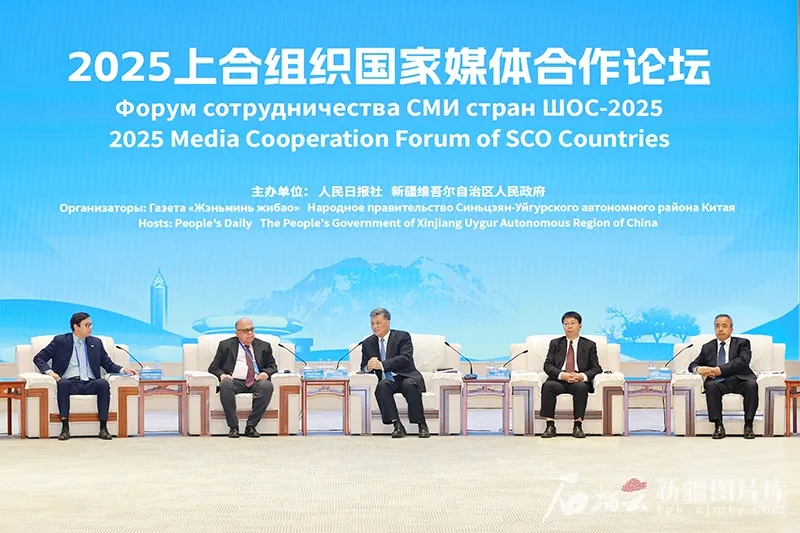Turkistan Times, 23 May 2025 - On May 22, 2025, the Chinese government hosted the 2025 Shanghai Cooperation Organization (SCO) Countries’ Media Cooperation Forum in Urumqi, the capital of occupied East Turkistan. The event is widely seen as part of Beijing's ongoing campaign to whitewash its oppressive policies against the Uyghur people and to shape international public opinion through carefully managed media narratives. Under the banner of “media cooperation,” Chinese authorities sought to convince foreign delegates that stability and development have been achieved in the region.
Ma Xingrui, the Communist Party Secretary of the so-called Xinjiang Uyghur Autonomous Region, used his speech to attack Western governments and media. “Certain Western forces are spreading groundless accusations such as 'forced labor' and 'genocide' to interfere in China’s internal affairs,” Ma said. “We rely on international media cooperation like this forum to tell the real story of our region.” For Uyghurs, however, these claims are nothing more than calculated attempts to cover up ongoing cultural erasure and mass surveillance.
Chinese-appointed regional leader Erkin Tuniyaz also spoke at the forum, portraying the situation in East Turkistan as one of “high-quality development and openness.” He described the continued militarization and surveillance as part of “legal and normalized counterterrorism” efforts. Tuniyaz's remarks ignored the well-documented existence of mass detention camps, which have held over a million Uyghurs and other Turkic peoples.
China further used the forum to encourage SCO member states' media to align with its official narrative and to unite in resisting what it called “Western disinformation.” Media delegates from Russia, Kazakhstan, and Uzbekistan echoed China's stance, speaking in favor of “friendly information sharing” and “truthful reporting.”
SCO Deputy Secretary-General Suhail Khan praised China’s “remarkable socio-economic achievements” and highlighted East Turkistan as a “crucial hub” of the Belt and Road Initiative, bordering several SCO nations. He argued that enhanced media cooperation among SCO countries would strengthen regional stability and mutual understanding. Representatives from Kazakhstan’s Ministry of Information, Uzbekistan’s national news agency, Tajikistan’s Asia-Plus media group, Kyrgyzstan’s Kabar agency, and Russia’s Trud newspaper also declared the forum to be a step forward for regional harmony, prosperity, and international influence.
However, Uyghur diaspora organizations strongly reject these claims, describing the forum as a state-controlled propaganda event designed to mask the reality of life under occupation. “How can there be real dialogue or transparency when independent journalists are banned from entering East Turkistan, and those who speak the truth are imprisoned?” said one prominent Uyghur activist in exile. “This forum is not about cooperation—it is about control and censorship. We urge the international community to look beyond the staged optics and see the ongoing human rights crisis for what it is.”

